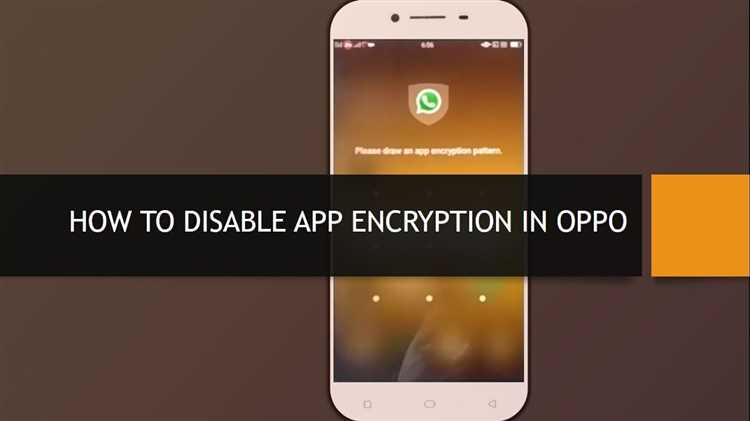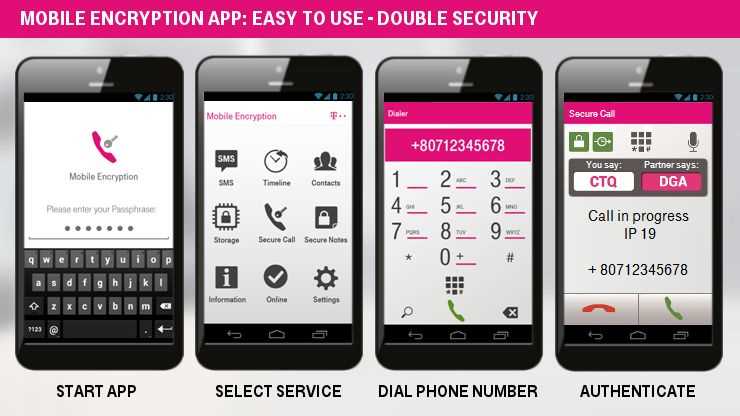When it comes to mobile security, iPhone has always been hailed as one of the most secure platforms available. But are iPhone apps encrypted? In this article, we will delve into the security features of iOS and understand how encryption plays a crucial role in safeguarding your data and ensuring the privacy of your apps.
Encryption is a fundamental aspect of iPhone app security. It involves the process of scrambling the data in such a way that it becomes unreadable without the proper decryption key. This ensures that even if someone gains unauthorized access to your device or your app’s data, they will not be able to make sense of it.
iOS uses several encryption methods to protect your app data. One of the key encryption technologies employed by Apple is the Advanced Encryption Standard (AES). This algorithm ensures that your app’s data is encrypted both at rest and in transit, making it extremely difficult for anyone to intercept or access the data without proper authorization.
In addition to AES, iOS also utilizes secure connections for data transmission, such as HTTPS, which provides an additional layer of encryption. This ensures that when your app communicates with external servers or services, the data transmitted remains secure and cannot be easily intercepted or tampered with.
Overall, iPhone apps are indeed encrypted, thanks to the robust security features of iOS. These encryption measures ensure that your data remains secure, protecting your privacy and providing a safe environment for your apps to operate in.
What are iPhone apps?
iPhone apps refer to applications that are specifically designed to be used on Apple’s iPhone or other iOS devices, such as the iPad and iPod touch. These apps can be downloaded from the App Store, which is Apple’s official marketplace for iOS applications.
iPhone apps are diverse and cater to a wide range of purposes and functions. They can be productivity tools, entertainment apps, social networking platforms, gaming applications, or even educational resources. There are millions of apps available on the App Store, developed by Apple as well as third-party developers.
Apps on iPhones are typically designed to enhance the user experience and provide additional functionalities beyond the device’s built-in features. They can make use of various hardware components such as the camera, microphone, GPS, accelerometer, and more. This allows developers to create innovative and interactive applications that take advantage of the iPhone’s capabilities.
iPhone apps are generally created using programming languages such as Objective-C or Swift, which are specific to iOS development. Developers can access the various features and APIs provided by Apple’s iOS SDK (Software Development Kit) to build and customize their apps.
The popularity of iPhone apps has grown significantly since the launch of the App Store in 2008. Today, they play a crucial role in enhancing the functionality and personalization of iPhones, making them an integral part of the iOS ecosystem.
Understanding encryption
Encryption is a fundamental concept in the field of computer security. It involves the process of encoding information in such a way that only authorized parties can access and understand it.
In the context of iPhone apps, encryption plays a crucial role in protecting user data and ensuring the security of the device. iOS, the operating system that powers iPhones, provides several encryption mechanisms to safeguard user information from unauthorized access.
One of the main encryption features of iOS is the use of File Protection APIs. These APIs allow app developers to encrypt sensitive data stored on the device, such as user passwords or financial information. The File Protection APIs use a combination of symmetric and asymmetric encryption algorithms to ensure that the data remains secure even if the device is compromised.
iOS also provides encryption at the file system level. The entire file system of an iPhone is encrypted using a technique called Data Protection. This means that all user data, including app data and system files, is securely stored and cannot be accessed without the user’s passcode or biometric authentication.
Furthermore, iOS apps are sandboxed, which means that each app runs in its own isolated environment. This isolation prevents apps from accessing each other’s data and ensures that even if one app is compromised, it cannot gain access to sensitive information from other apps.
In addition to these built-in encryption mechanisms, app developers can also implement their own encryption algorithms to provide an extra layer of security. This is particularly useful for apps that deal with highly sensitive data, such as banking or health applications.
| Pros | Cons |
|---|---|
|
|
In conclusion, encryption is a vital aspect of iPhone app security. It allows for the protection of sensitive information stored on the device and ensures that only authorized parties can access and understand the data. iOS provides various encryption mechanisms, such as File Protection APIs and Data Protection, to safeguard user data. App developers can also implement their own encryption algorithms for added security. Despite potential drawbacks, encryption plays a crucial role in enforcing the security of iPhone apps and enhancing user privacy.
Security features of iOS
iOS, the operating system that powers iPhones and other Apple devices, is known for its strong security features. Apple has implemented a range of measures to protect user data and ensure the overall security of its devices. Here are some of the key security features of iOS:
- Secure Enclave: The Secure Enclave is a specialized chip in iOS devices that handles cryptographic operations and stores sensitive data, such as fingerprint information for Touch ID and Face ID. This separate processor adds an extra layer of security, isolating sensitive data from other parts of the device.
- Encryption: iOS uses encryption extensively to protect user data. All data stored on an iOS device, including emails, photos, and app data, is encrypted by default. This encryption ensures that even if the device is lost or stolen, the data cannot be accessed without the user’s passcode or biometric authentication.
- App Sandbox: iOS employs a sandboxing mechanism to restrict the access and behavior of apps. Each app is isolated from the rest of the system, preventing unauthorized access to sensitive files and system resources. This restricts the ability of malicious apps to compromise the security of the device.
- App Store Review Process: Before an app can be published on the App Store, it undergoes a rigorous review process by Apple. This process helps identify and remove apps that could potentially pose security risks to users. Additionally, Apple regularly reviews and updates its guidelines to ensure that apps meet security and privacy standards.
- Two-factor authentication: iOS supports two-factor authentication, which adds an extra layer of security when signing in to iCloud or making purchases on the App Store. With two-factor authentication enabled, users need to provide a verification code in addition to their password, enhancing account security.
- Privacy-focused features: iOS includes various privacy-focused features, such as app permissions that allow users to control the data accessed by apps, location permissions that provide granular control over location sharing, and the ability to limit ad tracking.
These security features, among others, make iOS a secure platform for users to store their sensitive information and use mobile apps. While no system is completely immune to security threats, Apple’s ongoing commitment to security and privacy helps provide a safer environment for iOS users.
Does iOS encrypt iPhone apps?
One of the key security features of iOS is app encryption. When you download an app from the App Store onto your iPhone, it is already encrypted by default. This means that the app’s binary code and other resources are protected and cannot be easily accessed or modified by unauthorized individuals.
iOS uses a combination of encryption methods to safeguard the integrity and confidentiality of iPhone apps. The binary code of the app is encrypted using the Apple’s FairPlay DRM (Digital Rights Management) technology. This encryption ensures that the app’s code cannot be easily reverse-engineered or tampered with.
In addition to encrypting the app’s binary code, iOS also encrypts other resources such as images, videos, audio files, and data files associated with the app. These resources are encrypted using a variety of encryption algorithms, including Advanced Encryption Standard (AES), to provide an additional layer of protection.
Furthermore, iOS provides a secure execution environment, known as the “App Sandbox,” for each app. The App Sandbox restricts the app’s access to system resources and other apps, ensuring that it operates within its own isolated environment. This prevents malicious apps from accessing sensitive user data or interfering with the operation of other apps.
In summary, iOS encrypts iPhone apps to protect their code, resources, and data, ensuring the security and integrity of the apps on the device. This contributes to the overall security of the iOS ecosystem and helps to maintain user trust in the platform.
Importance of app encryption
App encryption is a crucial aspect of mobile application security. It provides protection against unauthorized access to user data, prevents tampering with the app code, and ensures the integrity of the app itself.
There are several key reasons why app encryption is important:
- Data protection: Encryption helps safeguard sensitive user data, such as login credentials, personal information, and financial details. By encrypting this data, it becomes unreadable to anyone who does not possess the encryption key, making it more difficult for hackers to gain access to valuable information.
- Prevention of unauthorized access: With app encryption in place, it is more difficult for unauthorized parties to gain access to the app’s code and manipulate it in malicious ways. This helps protect against various attacks, such as reverse engineering, code injection, and tampering.
- Compliance with regulations: App encryption is often a requirement for compliance with data security regulations, such as the General Data Protection Regulation (GDPR) in the European Union. By implementing encryption measures, app developers can ensure they are in compliance with these regulations and avoid potential legal and financial consequences.
- Protecting intellectual property: App encryption helps safeguard the intellectual property of the app developer. It prevents unauthorized individuals from stealing or copying the app’s code, protecting the developer’s investment and maintaining a competitive advantage.
Overall, app encryption plays a vital role in maintaining the security, privacy, and integrity of mobile applications. By implementing strong encryption measures, app developers can provide users with a safer and more secure experience, protecting their valuable data and ensuring the overall trustworthiness of their app.
Steps to Ensure App Security
Ensuring app security is crucial in order to protect sensitive user data and maintain the trust of users. Here are some steps that can be taken to enhance app security:
- Secure App Development: Incorporate secure coding practices during app development to minimize the chances of vulnerabilities. This includes using proper authentication and authorization mechanisms, input validation, and secure data storage techniques.
- Regular Security Updates: Keep the app updated with the latest security patches and bug fixes. Regularly monitor and address security vulnerabilities to stay ahead of potential threats.
- Secure Communication: Use secure communication protocols, such as HTTPS, to encrypt data transmitted between the app and servers. Implement secure authentication mechanisms to prevent unauthorized access.
- Data Encryption: Encrypt sensitive data within the app to protect it from unauthorized access. Implement strong encryption algorithms to safeguard data both at rest and in transit.
- Third-Party Security: Carefully review and vet third-party libraries and frameworks used in the app. Ensure that they have a good security track record and are regularly updated to address any vulnerabilities.
- User Permissions: Implement proper user permission mechanisms to control access to app features and data. Only request the necessary permissions and clearly explain to users why they are needed.
- Secure Backend: Ensure the backend servers and databases that support the app are properly configured and regularly audited for security vulnerabilities. Use strong access controls and encryption techniques to protect the stored data.
- User Education: Educate app users about best security practices, such as using strong passwords, enabling two-factor authentication, and regularly updating the app. Encourage them to report any suspicious activities or vulnerabilities.
By following these steps, app developers can greatly enhance the security of their iOS apps and protect user data from potential threats.
FAQ:
Are all iPhone apps encrypted?
Yes, all iPhone apps are encrypted. Encryption is a security feature provided by iOS to protect the data stored in apps.
How does app encryption work on iOS?
App encryption on iOS works by scrambling the data stored by apps using a unique encryption key. This key is specific to each app and is stored securely on the device.
Can encrypted iPhone apps be hacked?
While it is technically possible for encrypted iPhone apps to be hacked, the encryption provided by iOS is highly secure and makes it very difficult for hackers to access the encrypted data. However, it is always recommended to keep your device and apps updated to the latest version to ensure maximum security.
Are there any additional security features in iOS to protect app data?
Yes, apart from app encryption, iOS provides several additional security features to protect app data. These include data protection, secure enclave, and secure boot. These features work together to ensure that app data is encrypted, securely stored, and can only be accessed by authorized users.


